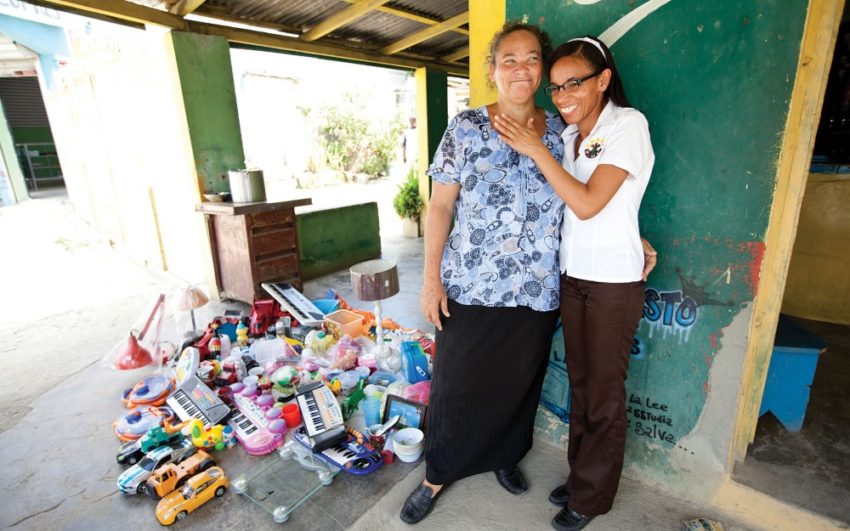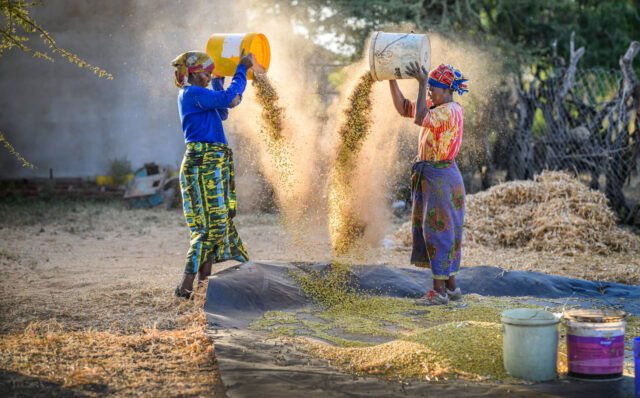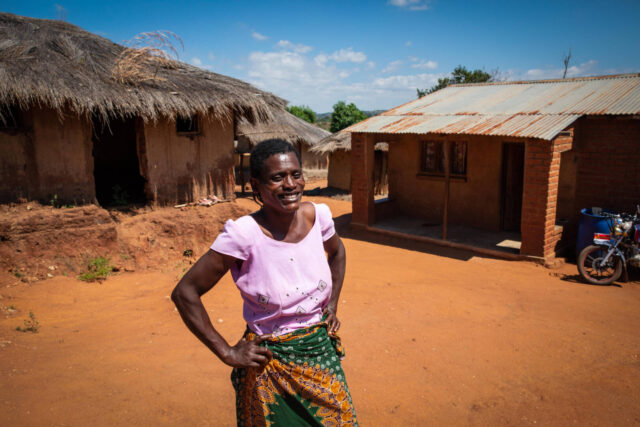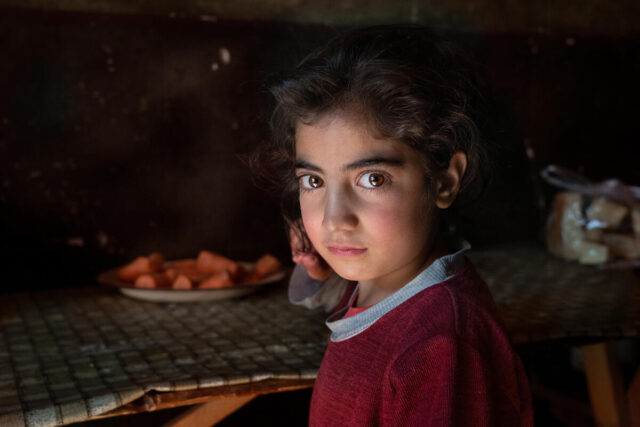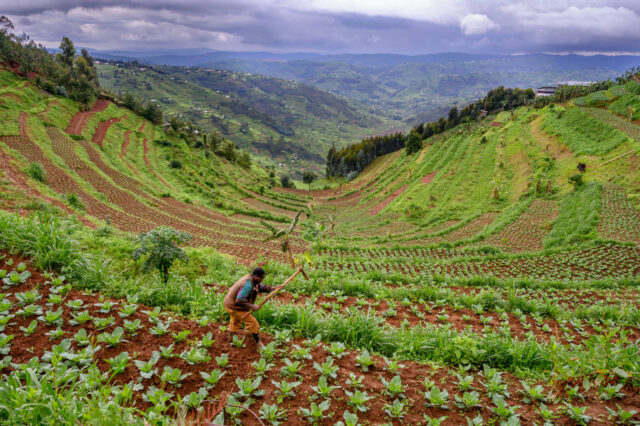Reyna Peña’s home in Sabana Perdida in the Dominican Republic is a place of imperfection. Her teacups are chipped. An armchair is missing an arm. Her china cabinet lacks two glass panes. Her glass-topped coffee table is missing its glass top.
But while Reyna, 41, lives in a sea of secondhand items, she fairly glows with joy. Small loans have made these used items useful — and empowered Reyna to climb out of a valley of despair.
Reyna’s slide into that valley began unexpectedly on Jan. 17, 2005. Reyna and her husband, Luis de Jesus Rosario, 39, lingered at home before going into work at the family bakery. “My father-in-law came knocking,” she says. “He said, ‘Something happened at the bakery.’ We ran.”
They arrived at a frightful scene. The bakery’s gas tank had exploded. One worker was fatally engulfed in flames; five other workers were seriously injured. Two children outside the bakery were killed as well.
Reyna’s life changed. She was disconsolate about the accident and feared retribution from her neighbors. “I had to send my children to the countryside,” she says. “I was afraid. When I went out to the street, I was like a walking dead person.”
Reyna and her husband lost their business — all their equipment and 35 sacks of flour worth $1,600. The family’s furniture and appliances were taken away. They had no possessions, but a lot of debt — half a million pesos (US$35,000).
Loan sharks prey on the vulnerable
Reyna was forced to move her family to a home so decrepit that the front yard was a pool of raw sewage covered in green algae.
“I thought I should go back to my old business,” says Reyna, whose husband couldn’t find work after the bakery explosion. “That’s when I started up with the loan sharks.”
In Sabana Perdida, a rough community where violence and HIV rates are high, loan sharks take advantage of poverty and the inability of women like Reyna to secure bank loans. “[Commercial banks] won’t lend you money because you are nobody,” says Bethania Encarnación, 33, a loan officer with FIME, World Vision’s Investment Fund for Microenterprise in the Dominican Republic. “You have no history.”
Loan sharks charge 25% interest, they don’t allow late payments, and “they always carry a gun,” Reyna says.
When the family’s truck stopped working, they fixed it by using $400 from a loan shark. A month later, the truck broke down again.
The rainy season came. The home’s rusted tin roof let water in. The water and the sewage outside attracted mosquitos.
Taking a chance
Reyna was at her lowest, beyond asking for help. She prayed, “Oh, God, what is going on?”
And God replied.
One day amid the rains, the mosquitos, the sewage, and the despair, a friend told Reyna about Bethania and World Vision’s FIME loan program.
Bethania met with Reyna. “In the beginning,” Bethania says, “I thought she would be a very bad client. When I saw her home and how poor she was, I thought she would be a risk.”
So Bethania recommended a group loan for Reyna and her friends. With her share of the US$200, Reyna bought secondhand dishes, utensils, and clothes she’d found on clearance. She displayed these in her house, reselling the items for a small profit.
Bethania was by her side, providing counsel as Reyna paid back her initial loan. Her second loan was for US$385, which she used to buy more household items and inexpensive clothing to resell.
Her third loan was for US$512. “That was the loan she’d asked for in the first place,” says Bethania. “Now we trusted her. We want to protect the client. They have big dreams, but they can get highly into debt. We start small, but then we grow big.”
With subsequent loans, Reyna bought land. The family built a house, and in May 2012, they moved in.
New dreams
Now the family lives a different life. This home has lush vegetation in the front yard. There is no sewage. The roof does not leak. World Vision constructed a bathroom so the family no longer has to use the facilities at their church. Meanwhile, Reyna is paying off the family’s debt.
Stories like Reyna’s are taking place throughout Sabana Perdida. Here, FIME serves 700 clients with a portfolio of $1 million. About 90% of the loan recipients are women.
Reyna’s mother, Milenne, gestures toward the high ceilings of the new house and declares, “This is the glory of God.”
New dreams are being born in this home filled with secondhand items — by a woman who deeply understands what it means to be broken but believed in again.
Pray with us
Pray that more families have opportunities to thrive. In poor communities, families live day to day with no safety net if they have a setback. Their cupboards aren’t filled with food, and they have no savings in case of a calamity. As Reyna’s story demonstrates, small loans to operate even the smallest business can make the difference between a life of desperate need and a life filled with opportunity and hope.
